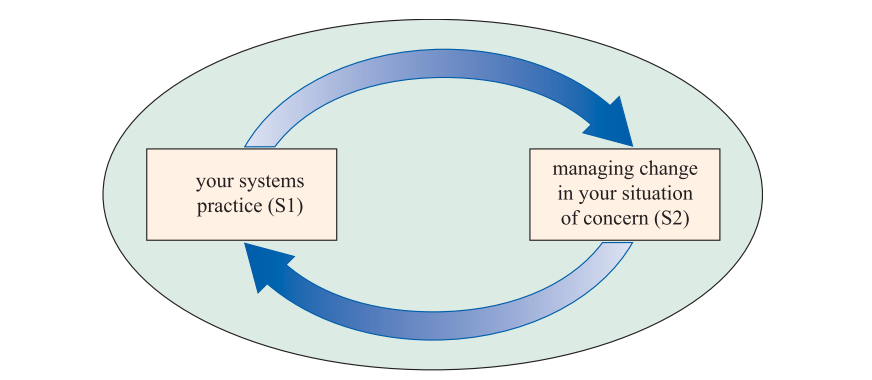2 minutes
My understanding of System Inquiry
After several examples during the course of Systems Thinking, part of Open University MBA, we can see that traditional approaches to project management had failed in tackling some difficult situations.
In chapter 10 of (Ison, 2010), it is discussed that situations with several complex elements interdependent which each other, in which an internal modification of either an element or connection will result in an uncertain outcome, and where conflict is present, due to different goal of the elements of the situation and the different background (understood as history and perspective) of the stakeholders, can benefit of systems thinking approach, and therefore introducing the concept of systemic inquiry as a meta-platform or process for a project or program managing.
For example, my career and study path are complex situations, that evolves and where external factors do not only influence me but also my studies and new ideas modify my situation. If I were considering my studies under a classical project management approach, I should develop a new roadmap every time a change of goal occurs due to my changed perspective caused by my inquiry, resulting in a tedious task in which planning takes more effort than working towards the goal.
The discussion made by (Ison, 2010) of considering me as a systems practitioner (and defining my situation as S1) is influenced by my system inquiry about a situation of concern (denoted by S2), and therefore the second iteration of system inquiry of S2 will produce different results, due to the fact that S2 if influenced by the practitioner with a changing situation (S1). That is explained in figure (1) reproduced from the course materials.

Figure 1: Extracted from page 58 of (Ison and Blackmore, 2010)
Chapter 5, (Ison, 2010) compares the relationship of S1 and S2 with the Heisenberg principle in quantum physics. In my opinion, as a physicist, I can appreciate the metaphor that Ray Ison tried to achieve. It must be noted though that although the measurement is affected by the observation of a phenomenon, it does not do that cyclical, and therefore a probabilistic system (that in our vocabulary of system thinking correspond with systematic) can be defined and studied, removing the complex system element from quantum physics.